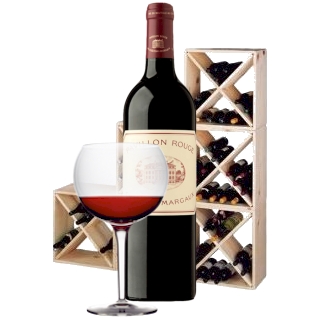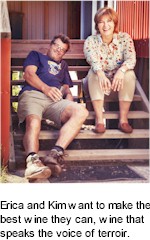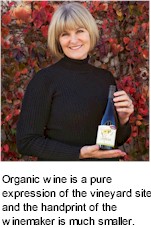


Back in 2004, Loveblock was a wild piece of land, untamed and hidden from the world. After working in the wine industry for most of their lives, Erica and Kim wondered what they could do with this wildness, how would the unique terroir translate to flavours in wine? Could they make wine that is elegant, restrained and complex? Wine that speaks of its place and season. Here in New Zealand land is precious; the economy largely depends on agriculture. As grape growers and wine farmers, Erica and Kim are custodians of this land. They must take care of it, restore soil balance and fertility without commercial fertilisers and chemical protection. They have learned that the rhythm of the land is immoveable, that we need to submit to it and respect it to get the best from it.

Erica and Kim want to make the best wine they can, wine that speaks with the voice of naked terroir. To do this, they hired the best winemaker in the land! At the heart of their environmental practice and ethical farming is the triple bottom line concept, Profit People Place, which directs the business and balance sheet, human resources and the overall health of those people in the business as well as the land and farming methods. Loveblock have a deeply held belief that people are custodians of their land. They farm it and grow grapes in accordance with Organic Certification standards, Sustainable Winegrowing New Zealand principles and low chemical intervention farming.
Grapes harvested from organically grown vines vary significantly from those harvested from conventionally or SWNZ grown vines. Organic vines compete with grasses for minerals and water because weeds and grasses are not killed using chemical herbicides.
Vigor is naturally curbed, plants are less active at harvest time and therefore deliver lower yields and around two weeks later than conventionally grown grapes. With Sauvignon Blanc for instance, the flavour profile at harvest is less pungent for various reasons.

Once harvested and in the winery, Organic Certification directs a low intervention regime that rejects using certain compounds routinely used in winemaking. Only organically certified products can be used, including yeasts and fining products. With limited yeasts available to capture a wider flavour spectrum and a lot of fining agents out of bounds, the organic winemakers’ toolbox is a lot more limited. In all cases, organic wine is a pure expression of the vineyard site and the handprint of the winemaker is much smaller. Winemakers have to be more careful, the flavours are more fragile and the thread of balance striven for in the vineyard needs to be retained. The wines are processed in a small Organically Certified Winery, developing at their own pace.
At Loveblock Farm, the anchor Estate Vineyard in Marlborough’s Awatere Valley is certified organic by BioGro New Zealand. The Loveblock team incorporate methods that are centuries old, such as composting to promote biodiversity and build soil, but they also draw from modern technology and equipment to make the vineyards more carbon efficient. Great wine of course, follows suit.